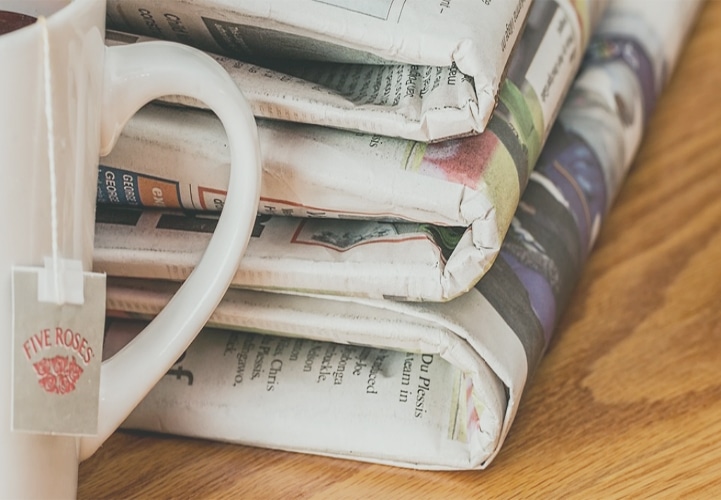In this interview, Mathilde Ramadier, explains how she translated one of the most significant enquiries in investigative journalism, the Panama Papers.
While Edward Snowden is stuck in Moscow and Antoine Deltour – the whistleblower of LuxLeaks – is still fighting with the courts for denouncing fraudulent tax agreements between multinationals and tax authorities in Luxembourg, “John Doe” took the risk of exposing the criminal practices of Mossack Fonseca law firms. With the valuable help of Bastian Obermayer and Frederik Obermaier, journalists at Süddeutsche Zeitung mobilized the press from around the world to highlight this massive corruption which is destroying our societies while protecting the anonymity of this guardian of democracy.
Passionate about investigative journalism, Mathilde Ramadier analyzed the links that exist between these front companies and heads of state, banks, wealthy individuals or traffickers and allowed the French-speaking public to get to the heart of the Panama Papers’ investigation. Being a hot topical subject, it was in the rush that this twenty-year-old translated “The best kept secret in the world. The true story of the Panama Papers”, released on 5 April 2016 in German and published in French on June 16.
This young cosmopolitan woman – known for her talents as an author, comic book writer and translator – is, among other things, the co-author of the comic strip “Berlin 2.0” and the translator of the graphic novel “Vita Obscura” by Simon Schwartz. In this interview, she explains how she proceeded to translate one of the most significant enquiries in investigative journalism.
You are an author, a comic book writer and translator, why did you decide to turn to translation?
Translation came to me through a love of languages. Unfortunately, I think that I’ll never be able to write my books in a foreign language because I think that’s the job of a lifetime. Besides, I don’t think I have that strength. On the other hand, I feel that translation work enriches my work as an author because it enriches my French and my understanding of the texts. It allows me to read more in English and German.
How did you come to translate the Bastian Obermaier and Frederik Obermayer journalistic investigation on the case of the Panama Papers?
In fact, Editions du Seuil already had my contact information because I have other book projects going on at home. So, they contacted me directly. I was very lucky.
What difficulties have you faced?
The major difficulty was the rhythm and the conditions imposed by the publisher. The Panama Papers being, at that time of the year, a lively subject, I worked almost day and night that month.
The second difficulty was to assimilate the economic vocabulary. This book is destined to be read by people who are interested in the case but who don’t necessarily have an economic background. This meant that I had to dive into the French press first to see how this vocabulary had been incorporated into the mainstream media.
However, it was the first time that I let myself be carried away by this excitement of discovering a document. Obviously, each translation is satisfying for a translator because you are the first to have access to a text and bring it to a new audience in a new language, but with that text, there was also the excitement of discovering new and scandalous content. I don’t hide that I had a few nightmares at night because, when you spend your days with people as pleasant as Gaddafi and company, it’s a little stressful.
All the cases discussed in the book have serious consequences for the people involved, how did you translate such sensitive subjects?
For each case and for each chapter, I consulted both the German and French press. That is, whenever I had the slightest doubt, I would verify the information. Then, some things were so new that they were only present in the book. In these cases, I would work with my companion who, in other situations, is my co-translator. He carefully reread the texts with me and checked these things out. The publisher has also played an essential role in rereading my work almost instantly. And finally, the legal service of Editions du Seuil took care of revisiting the translation last to check the legal aspects. For example, there was a whole chapter on the German spy who posed significant legal problems and since it had been out for 2-3 months in Germany, the Editions du Seuil were in contact with German publishers to keep abreast of the legal updates that had taken place after the book was published. Then, there was no trial, but it was interesting to be confronted with that. I would have liked to have two or three months to do this translation to get an even better quality result but it was a hot topic and the publisher couldn’t wait. So the book was released on June 16, just before summer.
Are you going to continue to practice journalistic translation?
Right now, I am busy with three books which are coming out at the beginning of the year in three quite different fields and I am preparing two more that will appear in 2017 but I would love to continue the translation. And, I particularly want to retranslate militant and engaging documents like that of the Panama Papers and to be seized by this excitement, this impression of delivering a thought-provoking document. Maybe what interests me more at the moment is literary translation.
Which author would you like to translate and why?
I don’t have a name that comes to mind but I would like to translate other investigative journalists. Maybe in 10 years from now, I would embark on literary translation but, for the moment, I don’t write fiction and I don’t think I have the ability to do that. I think that there are more qualified people than me for that!
Discover our translation agency.



